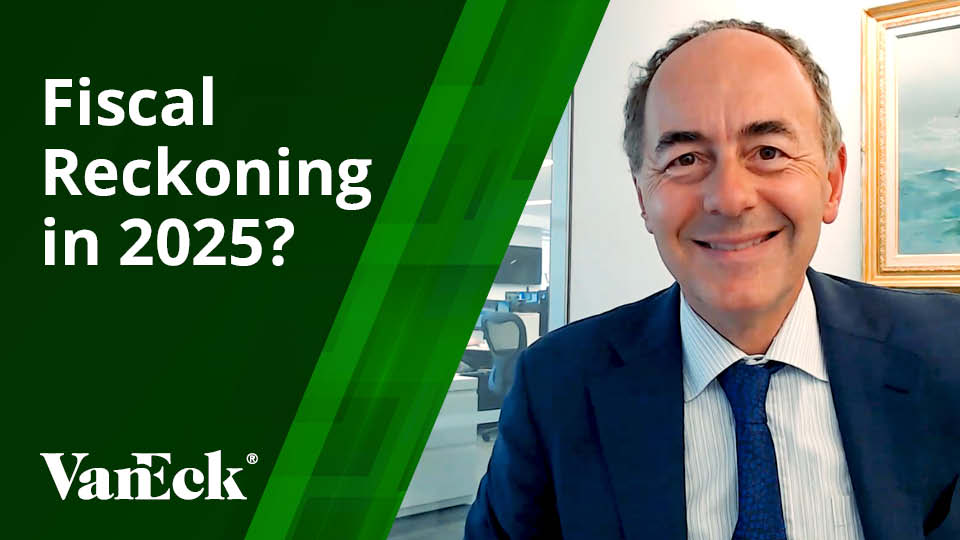Fed's Rate Delay is Disappointing
September 24, 2015
Read Time 4 MIN
Tight U.S. Labor Supports a Rate Increase
TOM BUTCHER: Jan, what is your reaction to the recent decision by the Federal Open Market Committee to hold off on raising interest rates? And what kind of effect is this decision going to have on gold and oil?
JAN VAN ECK: I think that the Fed’s decision was a bit of a surprise to us, because we had been looking at the U.S. labor market statistics. Unemployment has been falling, and we thought that this was good enough data for the Fed, which seems to be data-driven, to start its interest rate increase cycle, which it has been communicating to markets now for many months.
Oil Prices Unaffected
VAN ECK: We don't think the Fed’s decision to keep rates unchanged affects oil prices at all, because we're in a supply-driven commodity cycle, meaning what caused commodity prices to fall over the past several years has been a significant oversupply in global markets. Although this was not always apparent, it's clearly turned out that way. And it usually takes an extended period of time for companies to stop spending money on exploration and for production to actually start tailing off, which it has started to do. I believe there needs to be a lot of pain felt by the commodity markets in order for these oversupply cycles to work themselves out. The Fed’s inaction brought virtually no surprises on the oil side.
Gold Rallied Strongly
VAN ECK: Gold rallied quite strongly in the wake of the Fed’s decision. For gold, lower interest rates are good, because gold competes with, if you will, money in the bank. If money in the bank is paying high interest rates, then that is typically negative for gold. I think there is growing concern that the developed markets may be stuck in a stagnant growth cycle, and there are questions about what central banks would do to help stimulate economies if we were to slide into a global recession. I think this pessimism is helping gold quite a bit right now, but we will have to see. One last point, this is seasonally a good time for gold, as historically the August to December time period has tended to be positive for gold.
2015 is a Waterfall Year for China
BUTCHER: What about two other themes that we've been discussing recently: China and the emerging markets?
VAN ECK: 2015, thus far, has been a waterfall year for China and its interaction with the rest of the world. For its previous 20 years of growth, China had been cut off from global financial markets. China's trade exploded after 2001, when it joined or acceded to the WTO, the World Trade Organization. But the financial markets are basically capital controls in terms of limiting the convertibility of the renminbi and other currencies. We think that China is in a 24-month cycle of opening up its capital account, and this has started to impact global markets, especially as we saw in the summer of 2015. For example, small changes such as a 3-4% devaluation in China's currency had a dramatic ripple effect throughout the world's financial markets. In general, China is decreasing its interest rates over a multi-year cycle, and the Fed is likely to increase interest rates in the near term. This might cause a bit of a seismic mismatch of policies over the next several years. What is interesting is that China is decreasing interest rates at the same time that it is liberalizing its financial markets. So we have these multiple crosscurrents. The point we make is that financial markets, in my view, don't like uncertainty, and that's what we’ve seen coming out of China this year. At the same time, I do think that China's central bank doesn't mind surprising markets. It doesn't tend to pre-announce or to communicate its actions ahead of time, and the world should get used to that.
EM Have Been Expecting Higher U.S. Rates
BUTCHER: What about emerging markets?
VAN ECK: Overall I believe that emerging markets have been reacting to concerns about China’s slowing growth. They have also been anticipating rising interest rates or tighter monetary policy in the United States, because some of their funding is in U.S. dollars. The question is: Is this cycle over or not? We think that emerging markets have become extremely attractive now, especially emerging markets equities. They probably led the world in the recent bottoming out cycle, so we believe it's a good time to look at emerging markets going into 2016.
BUTCHER: Wonderful. Thank you very much Jan.
Related Insights
April 19, 2024
April 19, 2024
April 17, 2024

